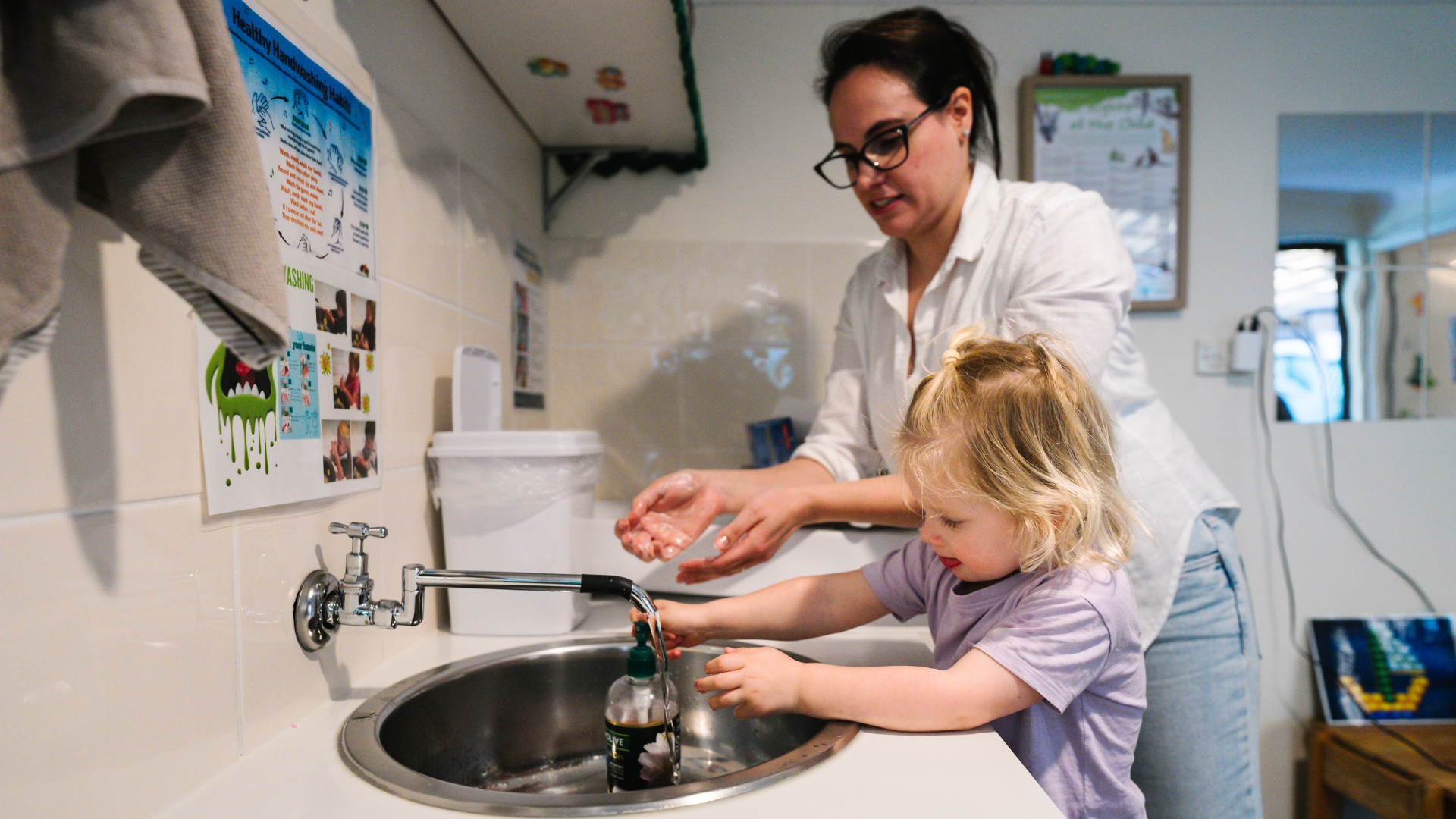
Good hygiene in services helps children develop lifelong good hygiene habits and reduces the risk of infections spreading.
National Quality Standards (NQS) Quality Area 2 aims to safeguard and promote children’s health and safety, minimise risks and protect children from harm, injury and infection.
Why is good hygiene in services important?
Infections can spread through physical contact between people, airborne droplets from coughing or sneezing, or touching surfaces or objects.
In services children come into contact with other children, adults, toys, furniture, food and cutlery.
Good hygiene practices in services minimise the risk of infectious illnesses spreading.
Good hygiene practices are used in services
Services use a range of hygiene methods including procedures and specific daily practices by educators and children.
Service policies and procedures guide educators practice based on recommendations from recognised authorities such as the National Health and Medical Research Council (NHMRC), state and territory health departments and Food Standards Australia New Zealand.
Good hygiene practices used in services include:
- supporting adults to use thorough handwashing and drying practices
- encouraging children to follow appropriate handwashing practices
- ensuring equipment and toys are regularly cleaned and well maintained
- keeping bathrooms, kitchens, sleep and rest areas, and play areas clean
- using appropriate toileting and nappy change methods
- using appropriate procedures for wiping children’s noses, and for teaching children how to wipe their own noses
- displaying signs and posters about hygiene procedures at child height in bathrooms and play areas
- implementing appropriate food handling, preparation and storage practices
- providing information to families about the recommended immunisation schedule for children
- developing clear procedures for handling and disposing of bodily fluids such as blood and any contaminated items used in first aid
- providing information to families on exclusion periods of illnesses and infectious diseases.
How do educators help children develop good hygiene habits?
Educators reinforce good hygiene habits at the service through the children’s program of play and daily routines such as mealtimes, nappy changing and toileting.
Educators set hygiene rules with children and provide positive feedback and support to help them develop good personal hygiene skills.
Educators use good hygiene methods and encourage and model them to children. This also promotes children’s self-help and self-care skills.
What can you do to support good hygiene in your child's service?
You can follow simple good hygiene procedures when visiting the service and use good hygiene practices at home with your child.
It’s also important to follow your service’s policy on managing illnesses and exclusion periods for infectious diseases.